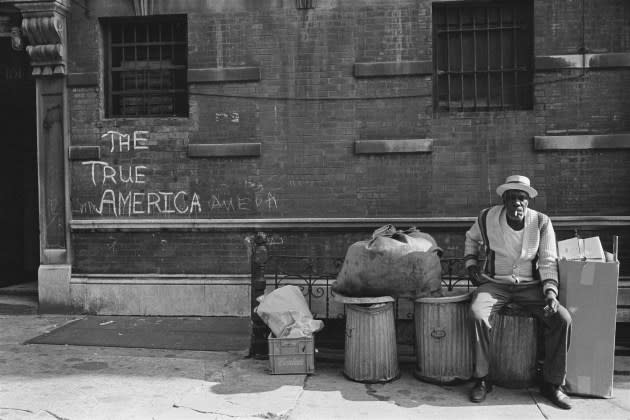’Ernest Cole: Lost and Found’ Director Raoul Peck: ‘There Is a Fight to Be Had About the State of the World’

Raoul Peck’s life is as fascinating as his films, filled with unexpected twists and turns. From his early stints as a cab driver and journalist, to a minister of culture post in his native Haiti, to teaching, to founding his Velvet Film production shingle to his breakthrough when he earned an Oscar nomination as producer/director with the James Baldwin doc, “I Am Not Your Negro,” the common denominator is Peck’s drive to make life better through his work. “I went into film because there were things I wanted to say, to express or deconstruct,” he explained. “And there is a fight to be had about the state of the world and wherever I’m living.”
On May 20, Peck will have his third Cannes premiere with the Special Screenings doc “Ernest Cole: Lost and Found.” It chronicles the life of a South African photographer — another of Peck’s past professions — who published a 1967 book, “House of Bondage,” revealing the horrors of life under apartheid. The film got off the ground when the late lensman’s family contacted Peck about a huge trove of negatives recently found in a Swiss bank deposit box, revealing portraits of Black Americans in New York and the South with disturbing parallels to Cole’s homeland. The mystery of how the photos got there, and Cole’s life as an expatriate struggling in the U.S., are equally powerful.
More from Variety
The film’s portrait of South Africa also has unsettling parallels to Peck’s experiences in Haiti. “You hear the words of [Ronald] Reagan, [Margaret] Thatcher and [Jacques] Chirac saying, ‘We shouldn’t boycott South Africa because we’d hurt the very people we want to help.’ [Yet] there was no problem boycotting Russia, even though big numbers of the population there were suffering,” he noted. “My anger at the time was huge. I could see the double standard between how they handled Haiti and South Africa, because the elephant in the room was that all of them had major [financial] interests in South Africa … It’s important to show that hypocrisy, because it allows you to understand what’s going on today.”
As a filmmaker, Peck often alternates between docs and narrative features. “It allows me to not be frustrated by the limits of either one of the forms,” he said. Two of his biggest projects to date are the 2000 biopic “Lumumba” and the 2021 HBO docuseries “Exterminate All the Brutes.” Recently re-released in theaters, “Lumumba” covers the rise and fall of the first prime minister in the newly independent Republic of the Congo, and his Peabody-winning “Brutes” examines the history of colonization and genocide around the world. Some of his docs have also become narratives: “Lumumba” is a follow-up to his 1991 doc of the same name, just as 2013’s Haiti earthquake doc “Fatal Assistance” was followed by 2014’s “Murder in Pacot.” As Peck explained, “they have slightly different audiences, and I think when they see one, they go see the others.”
Up next for Peck is “Orwell,” a comprehensive doc on the “1984” and “Animal Farm” author George Orwell that’s all too timely. Neon will handle North American distribution. “It’s exactly what’s happening today everywhere in America: the Trump trial, the Supreme Court decisions, Israel, Palestine, Yemen, Sudan, AI,” he said. “You are totally embedded in Orwell right now, so for me, making these films is always dealing with the present.”
With so many major career changes, does the 70-year-old Peck plan on taking any more unexpected left turns? “I’m happy you didn’t say ‘right’ turns,” he laughs. “Life, for me, is a way to fight. So I go where the fight leads me.”
Best of Variety
Sign up for Variety’s Newsletter. For the latest news, follow us on Facebook, Twitter, and Instagram.

